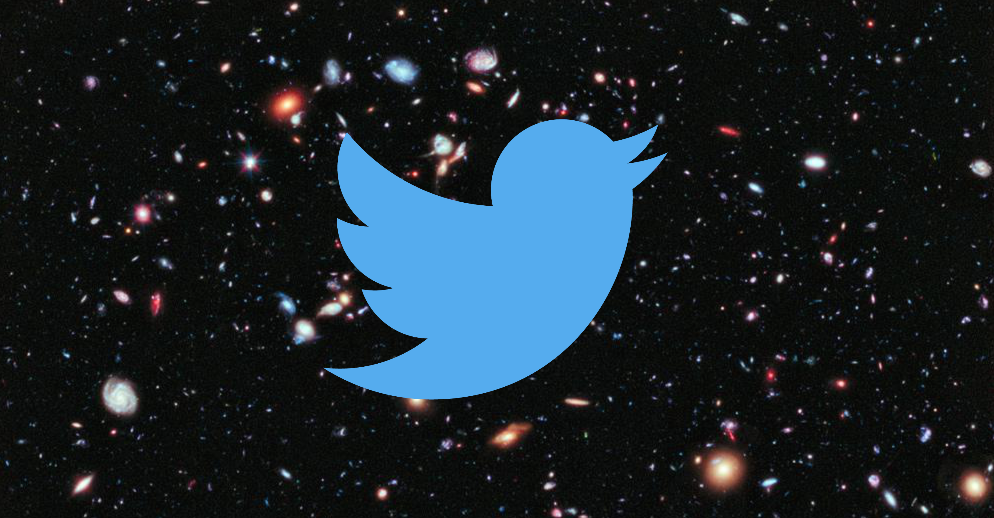Abigail Stevens is an astronomy PhD candidate at the Anton Pannekoek Institute, University of Amsterdam. Her research is on spectral-timing analysis of X-ray binaries.
 Image credit: HST/Twitter/A.L. Stevens
Image credit: HST/Twitter/A.L. Stevens
This is the second post in a three-part series on Twitter at Conferences, aimed at Twitter users (I recommend reading the first post if you missed it, the third post may be found here). There have also been a few AstroBetter posts on Twitter at the AAS meetings over the years (see aas215, aas217, and aas219).
Tweeting at conferences is probably my favourite use of Twitter. It adds a whole new level of interaction to the conference experience and connects me to colleagues who I otherwise might not meet (particularly those in different sub-fields). One of the things I look forward to about conferences is meeting tweeps in-person! All levels of tweeters can contribute to and benefit from the conference Twitter presence. Here are some tips and tricks:
- For those new to the game: the hashtag (including the ‘#’) must be included in the text of all tweets that you want to be discoverable by it. Also, if you have a private Twitter account, only people who you approve to follow you can see your tweets.
- Give your non-astronomy Twitter followers a heads-up that you’ll be tweeting at a conference, and tell them when the conference is ending, so they can mute you if they want to.
- Consider writing your Twitter handle on your conference nametag, particularly if there are lots of tweeters at the conference, so people can put a face to your tweets.
- Don’t forget to credit the speaker in your tweets (typically with either their first initial and last name or just their last name). Tweets have new guidelines so that mentioning a Twitter handle (including the ‘@’) doesn’t count against the character limit, so if the speaker is on Twitter, credit them that way!
- If you catch it, it can be nice to tweet the project website or online code repository if the speaker mentions it. URLs get truncated so it won’t take up all of your 140-character tweet limit.
- If you’re sitting towards the front of the room, you can tweet a photo of the conclusion slide or a good summary graphic. Bonus points if you get a good shot of the speaker too!
- If you happen to know or have heard that the presenter has close competitors and is possibly at risk of getting scooped, keep your tweets vague and don’t tweet photos of their slides.
- Tweet photos of colleagues with their posters (or even “action shots” of them explaining their poster to someone else).
- Make sure your smartphone is on vibrate or silent and the volume is off on your laptop — you’re going to get a lot of notifications from other tweeters favouriting and retweeting you. I actually turn off push-notifications for Twitter on my smartphone.
- Some people thread their tweets on the same talk by “replying” to their first tweet about it (and then deleting their account name from the text of the next tweet). It’s a great idea, but I often forget to do it.
- Find a good compromise between using abbreviations to fit more in a tweet, and using so many abbreviations that online followers can’t understand it.
- If a speaker asks the audience to not tweet or otherwise publicize some or all of their presentation, respect that.
- Consider not tweeting while inebriated using the conference hashtag.
I actually mainly use Twitter for conferences and the like, and I’ve heard from more than one colleague that they’re in the same boat. Have you ever followed a colleague on Twitter well before meeting them in person? (Does meeting them change the voice you read their tweets in in your head?)
I’ll take editor’s privilege on this one and note that I have definitely heard someone’s voice differently after meeting them, mostly because I didn’t know said person was British!
Similarly, I have met a lot of folks on Twitter before ever running into them at a conference. It’s a lot of fun to get to meet all of those people; they tend to be pretty cool.
Beatriz Mingo brought up a great point (via twitter discussion!): If tweeting photos of talks, always assume the results are unpublished except if explicitly mentioned. Don’t tweet photos of graphs and the like, or explicitly quote results, unless you know the work is published.
I would add “don’t tweet just -nice talk by ###-” mention at least what this is about.
Good point — the best conference tweets give content and/or context, so that someone following the tweets remotely would get the gist of it.